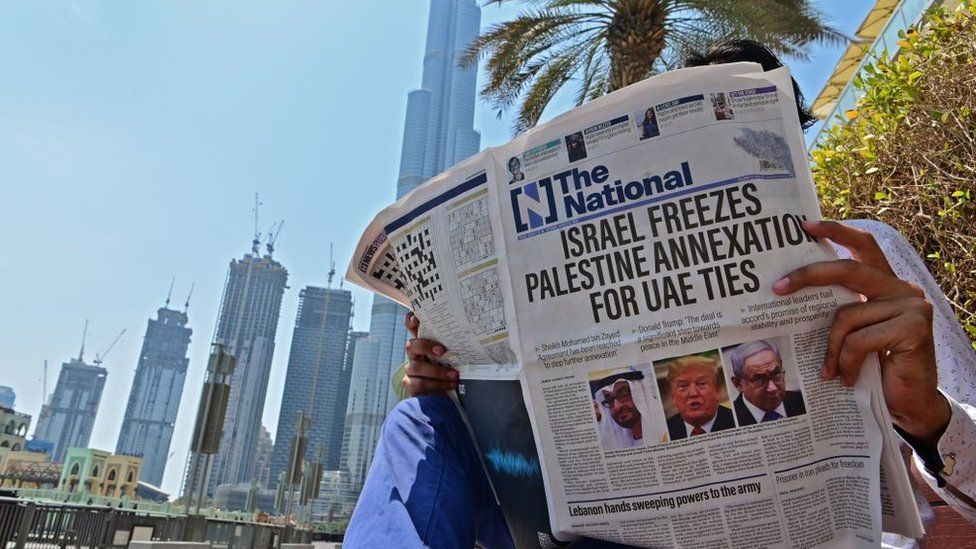United Arab Emirates media guide
- Published

The UAE is a regional and international centre for TV and media, alongside Egypt and Lebanon. Dubai Media City and twofour54, Abu Dhabi's media zone, were set up to attract industry players.
The UAE is home to major pan-Arab broadcasters, including Saudi-owned MBC and OSN. Sky News Arabia operates from Abu Dhabi.
The presence of millions of expatriates adds variety to the media scene, which caters for Arab, English-speaking and South Asian audiences.
Most domestic UAE media outlets are run by state-owned Abu Dhabi Media and Dubai Media Incorporated.
Self-censorship
The constitution provides for freedom of speech but there is strong regulatory and political control of media content.
Publications must be licensed and follow official guidelines on reporting. Foreign publications are censored before distribution. Journalists tend to practise self-censorship.
The UAE has one of the highest internet penetration rates in the Arab world. There were 12.1 million internet users by July 2022 (Internetworldstats.com). Extensive, automated filtering is in place at ISP level. Targeted content includes opposition politics and religion.
Legislation bans the dissemination of online material that can threaten "public order", and provides for prison terms for those who "deride or damage" the reputation of the state and "display contempt" for religion.
Press
- Al-Bayan - Arabic daily, Dubai government-owned
- Gulf News - Dubai-based, English-language
- Khaleej Times - private, Dubai-based daily, English-language
- Emirates 24/7 - English-language online publication
- The National - Abu Dhabi-based English-language daily
Television
- Dubai Media Incorporated (DMI) - Dubai government-owned pan-Arab broadcaster, operates Dubai TV, Dubai One
- Abu Dhabi TV - pan-Arab broadcaster
- Ajman TV
- Sharjah TV
- MBC - Dubai-based pan-Arab broadcaster
- OSN - Dubai-based pan-Arab multichannel platform
- Al-Arabiya - pan-Arab news channel operated by MBC, English-language web pages
- Sky News Arabia - Abu Dhabi-based pan-Arab network
Radio
- Abu Dhabi Media Company - operates Abu Dhabi FM and other networks
- Radio Asia - commercial, broadcasts in Hindi, Urdu and Malayalam
- Al-Arabiya FM - commercial, Arabic pop
- Dubai 92 - commercial, English-language pop
- City 1016 - commercial, programmes in English and Urdu
News agency
- Emirates News Agency (WAM) - official